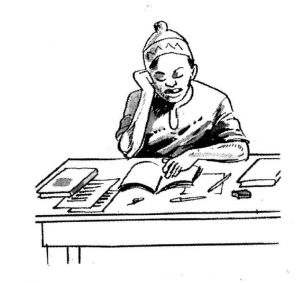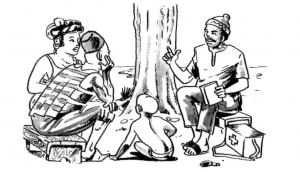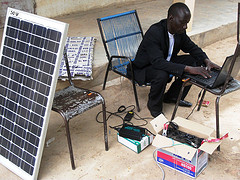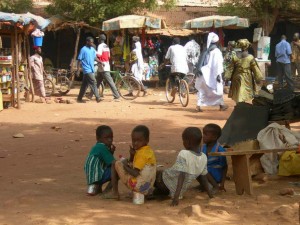
Illustration from page 23 of “Là Où Il N’y a Pas de Docteur”
Things are moving quickly since we first conceived of the idea to translate Where There Is No Doctor into Bambara in the spring of 2012. Our steering committee meets once a month (and has lots of phone calls and emails in between!) I’ll be posting monthly updates here so you can track our progress.
Subscribe to email updates or like us on Facebook to stay in touch. And if you can volunteer to help, email Michelle Chan.
Administrative
We’ve set up a website (obviously!), and sorted out all the administrative details. Our goal is to be as transparent as possible, and to make sure that all donations will be tax deductible (in the US anyway). All the nitty-gritty details are here.
Translation
Our translators in Bamako have finished translating two chapters (about 10% of the book). Now, we are having those chapters undergo proofreading and copy-editing by independent reviewers. (If you are a native Bambara speaker, or know of one that can help us, please get in touch — we could use more help!)
The chapters we chose to translate first were Chapter 1: Home cures and popular beliefs, and Chapter 19: Information for mothers and midwives. (The chapter numbers refer to the English edition, which you can read online here; the numbering is slightly different in the French edition published by ENDA in Senegal.)
All translation and editing is being done by professional translators who are native Bambara speakers. We are paying fair but competitive wages. Paying for translation will be one of our two major expenses, along with printing. Translation of the first two chapters was paid for by donations from Steering Committee members, and a generous startup grant of $1,250 from our sponsoring organization, African Sky.

Illustration from page 20 of “Là Où Il N’y a Pas de Docteur”
Layout & Design
The chapters will be laid out in Adobe InDesign by volunteer Ruth MacDonald. We’ll post PDF copies here on our website and invite comments and feedback. Next comes a very important step.
Field Testing
Our partners in Mali will organize a half-day meeting to “field test” the text. We will invite health workers, representatives from government and NGOs, and others to review the text and offer feedback. Field testing is an important step that Hesperian Health Guides, the publisher of the original Where There Is No Doctor, does for all of its books. The goal is to make sure that the text and images are clear an understandable to the target audience — local health workers who may have little formal education — and that information and advice is appropriate for local conditions.
Launch Party
Next, we’re planning a house party in the San Francisco Bay Area in the Fall, probably in mid-November. This will be a chance to learn more about the project, meet some of the people involved, and of course, enjoy some good food and music. The event will also be a fundraiser — we need to raise money soon to be able to keep our translators busy .
Fundraising
Finally, we are working on a fundraising strategy, and will be submitting proposals and applying for foundation grants. In the meantime, we are soliciting individual donations. Thank you to three former Mali Peace Corps Volunteers and friends who have together donated $400! Individual and family donations will help us to keep paying our translators and keep the project going!
To make a fast, secure online donation, visit our page at First Giving. If you have any ideas or suggestions for fundraising, or can help, please get in touch with Anh Ly.

 nankan na yan.
nankan na yan.



